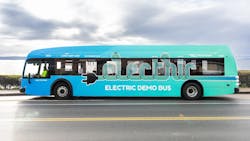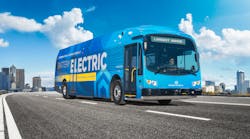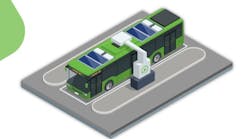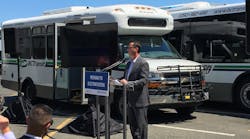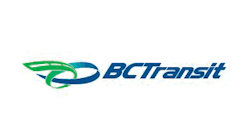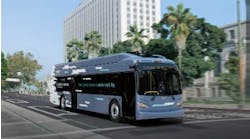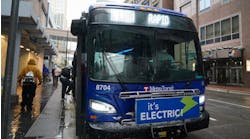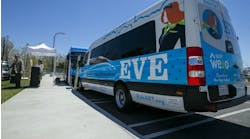The government of Canada and the government of British Columbia will provide a total of C$395.5 million (US$300.28 million) in funding to support BC Transit’s transition to zero-emission transit buses.
The federal government’s portion of the joint funding agreement comes from two sources: C$82 million (US$62.2 million) through the Zero Emission Transit Fund and C$87.8 million (US$66.7 million) through the Public Transit Infrastructure Stream of the Investing in Canada Infrastructure Program. British Columbia will contribute C$158.6 million (US$120.4 million) and local recipients will contribute C$67.3 million (US$51.1 million).
The funding will support BC Transit in the purchase of up to 115 battery electric buses and the installation of 134 charging points. BC Transit aims to convert its entire fleet to zero-emissions by 2040 and committed to purchasing only electric buses starting in 2023.
BC Transit’s first 10 battery heavy-duty electric buses were delivered to BC Transit’s Victoria Regional Transit and supported with funds provided by the governments of British Columbia and Canada.
“This is an important investment to support electric bus expansion in British Columbia. By investing in modern electric buses and infrastructure for communities across the province, we provide people with more access to clean and convenient transit services, which helps build a sustainable future for generations to come, prioritizing the well-being of both people and the environment,” said British Columbia Minister of Transportation and Infrastructure Rob Fleming.
BC Transit plans to utilize the new joint funding to advance four projects:
- Regional Transit Service – HD BEB Deployment Phase 1A that will support the procurement of up to 49 battery electric buses, charging infrastructure equipment to support approximately 68 charging points.
- Vehicle Acquisition (Phase 9) that will support the procurement of approximately 51 heavy duty BEBs to support the expansion of BC Transit’s bus fleet.
- Battery Electric Bus Facility Upgrades that will support the design, purchase and installation of approximately 134 in-depot charging points and related infrastructure at nine locations.
- Vehicle Acquisition (Phase 10) that will support the procurement of approximately 15 battery electric buses to expand BC Transit’s fleet.
“BC Transit is pleased to work with our federal, provincial and local government partners to deliver environmentally sustainable modes of transportation that our transit customers can rely on. Funding provided through the Zero Emission Transit Fund and the Investing in Canada Infrastructure Program supports phase 1 of BC Transit’s plans to have our fleet fully electric by 2040. I thank our partners for their continuous support as we make the exciting and necessary shift towards cleaner modes of transportation,” said President and CEO of BC Transit Erinn Pinkerton.
